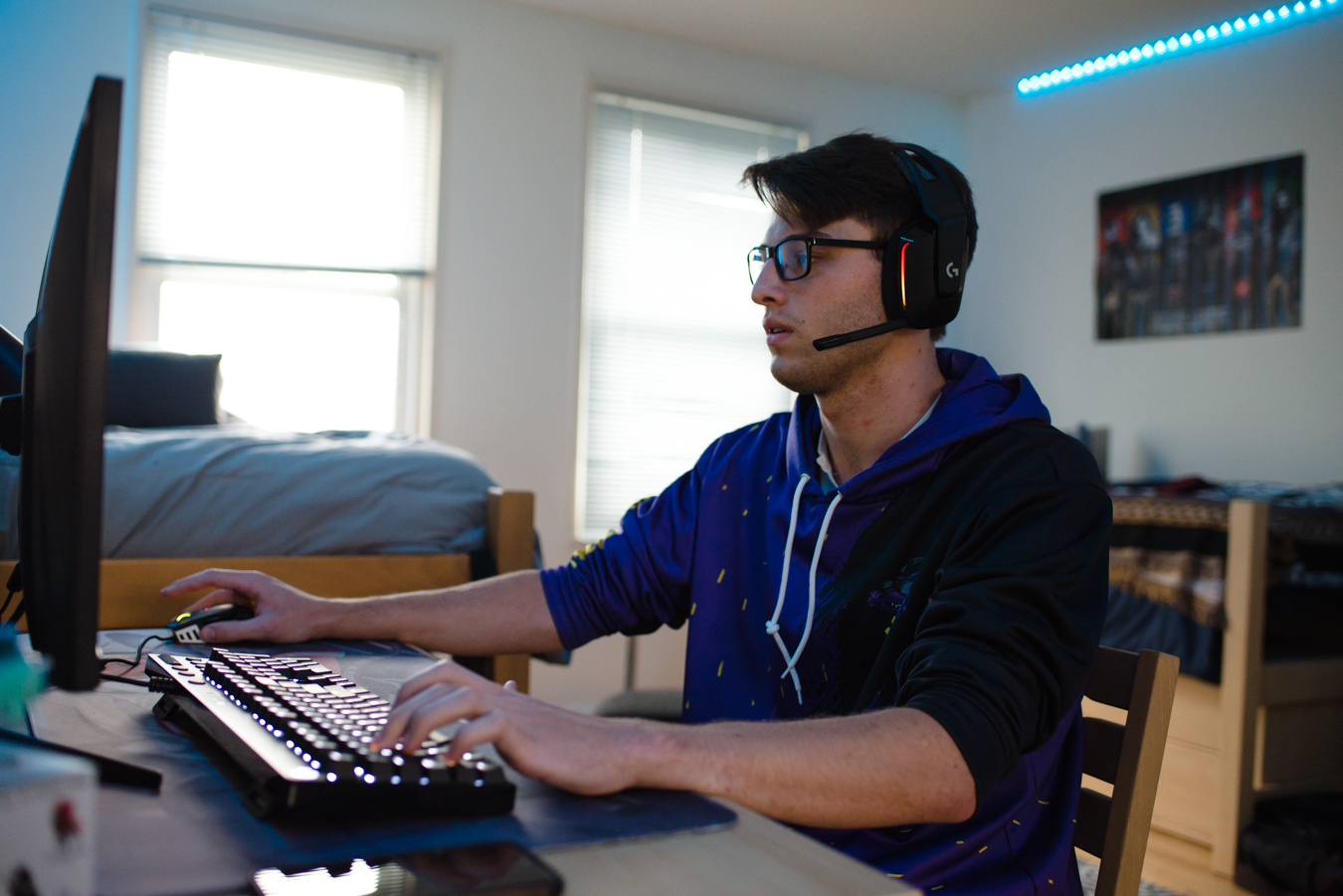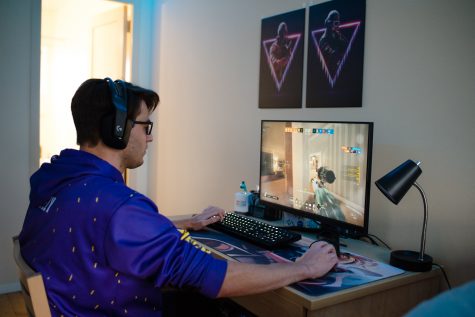



Esports has become popular the last few years with proof of financial success, but the university has not acknowledged it as an official program
Sep 23, 2021
When Gaming Gators initially started in 2015, it was just a way that a group of SF State students would be able to play casual games together. Now, boasting over 1,300 online members, the esports club has progressed into something much larger.
The club has been using an online platform, Discord –– a space where people can come together for whatever topics they create on their server, mainly targeted toward gamers –– to communicate and host events. It currently has 1,315 members on Discord, which is the second largest server in the Student Hub behind Gators @ SFSU.
Esports have increasingly grown in popularity the last couple years and have caused gaming to become extremely profitable. Companies such as Logitech and Redbull have partnered with esports teams to compete against others.
Colleges such as UC Irvine and Menlo College have created their own varsity esports teams, but SF State has yet to dip their toes in the scene.
“I think, by the nature of what happened with a lot of clubs on campus, just unfortunately a lot of clubs can not function in this environment,” said Nicole Gyolai, co-president of Gaming Gators.
In an email to the Xpress, Brandon Davis, Senior Associate Director of Athletics, said that esports has been more of a recreational sport and isn’t part of SF State’s intercollegiate athletics. He added that all of the university’s intercollegiate athletics teams are NCAA-sponsored sports, besides wrestling.
“The NCAA has a process in which sports are adopted and when esports were presented, the NCAA passed,” Davis wrote in email to Xpress.
COVID-19 negatively affected a majority of clubs at SF State by making them meet virtually, but the pandemic actually helped out Gaming Gators, according to Alejandro Enriquez, fellow co-president of Gaming Gators.
“Every other sports club died except for us … we are the only athletic club to do any events in the past one to two years,” said Enriquez.
Gyolai said that the lockdown led many people to start gaming more than usual, which has helped bolster the club’s participation.
“If you’re attending college and you’re trying to somewhat stay active and social, because it’s so hard to maintain connections and things like that, I think joining a club is a very easy and convenient way to do that,” Gyolai said.

Dr. Dina Ibrahim is a BECA professor at SF State that has two courses that revolve around esports — BECA 352 Esports Studio Tournament and Event Production and BECA 452 Live Streaming and Content Creation for Esports. They focus on livestreaming esports tournaments on Twitch and talent marketing for the esports industry. She said that esports are more than just gaming, it teaches event planning as well as production, business and creative skills.
Currently, she serves as the academic advisor for Gaming Gators. Up to this point, esports have not been seen as equal to traditional sports but Dr. Ibrahim believes they should be because it can make just as much profit. She explained that traditional sports are dying since people from ages of 18 to 25 would rather spend their money on microtransactions to watch live streamers on platforms like YouTube or Twitch.
“It’s so expensive to go to a game: you have to have to get the tickets, parking, the overpriced food and the beer and all of a sudden it’s this $200 commitment to go watch a game,” Ibrahim said.
College sports players are able to miss class in order to compete in games. One of Enriquez’s goals is that college esports players would be able to do the same.
“If you’re competing on our team, you should get your tuition paid because it’s basically like a job. You’re basically like an athlete as well. If you’re putting in the time, six to twelve hours a day to game and compete, then I feel you should be compensated for that,” Enriquez said.
Ibrahim explained that another long term goal for Gaming Gators is to have a place on campus to put consoles and gaming computers so it’s a place where students would be able to hang out and play games. In a previous interview for Xpress, Kieran Eng, the former manager of Rack-N-Cue, said the games room planned on adding consoles to the space, but did not provide a timeline.
Although building a gaming center could be expensive for the school, the space would be able to generate revenue. Ibrahim said that Associated Students at UC Irvine put together a business model so that they can charge students either a membership or a $2 to $4 per hour plan in order to use the gaming computers that they have in their space. According to Ibrahim, a similar plan could be used here at SF State.
The club could also generate revenue through tournaments. Dr Ibrahim taught a class about esports and interdisciplinary skills. In Fall 2019, the class hosted a Super Smash Bros. Ultimate tournament with a live audience at BECiA’s Studio One and made about $1,000 to $2,000, According to Dr. Ibrahim.
Although the club does host events online, they hope to be able to host events in person.
The best way to get into Gaming Gators is through their Discord that can be joined by joining the SF State server, according to Gyolai and Enriquez.
“I want this club to be a place where people meet other people and they befriend other people,” Gyolai said. “They play games together, they hang out in person together, they go to events together. Where people can really build connections.”

